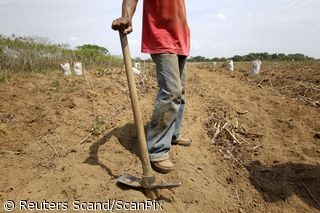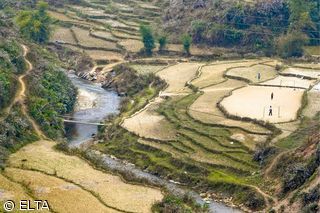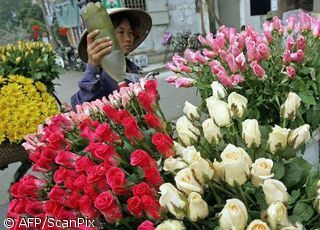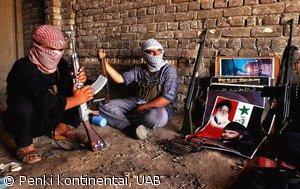Touted by the East German leadership as a barrier against "fascist provocation," the Wall was really an attempt to stop waves of skilled workers and educated people leaving a repressive state
Published:
10 November 2004 y., Wednesday
Touted by the East German leadership as a barrier against "fascist provocation," the Wall was really an attempt to stop waves of skilled workers and educated people leaving a repressive state. Around 3 million fled between 1945 and 1961, when the Wall went up. In time, it became etched in the Western consciousness as a symbol of inhumanity. More than 100 people were picked off by border guards while trying to escape; dozens of others were killed by mines.
However, by November 9, 1989, deep political shifts had prepared the ground for an earthquake. Leader Erich Honecker had been forced to resign and 4 million people had demonstrated for democracy. On that momentous day, the government's spokesman Guenther Schabowski announced that East Germans could go to West Germany if they applied for a visa.
Within minutes, people swarmed around the wall's border posts in what amounted to a siege. At midnight, they broke through to West Germany. That sounded the death knell for the Cold War and set the stage for German reunification a little more than a year later. But 15 years on, a very different kind of mass mobilisation took place. The demonstrations in Leipzig this August highlighted the economic plight of the former East German regions, where unemployment is double that of the western part.
When the old regime collapsed, many skilled workers found themselves on the wrong side of supply-and-demand economics.
Šaltinis:
euronews.net
Copying, publishing, announcing any information from the News.lt portal without written permission of News.lt editorial office is prohibited.
The most popular articles
 EU animal welfare rules must be more rigorously enforced, with more inspections and effective penalties, said the Agriculture Committee on Wednesday.
more »
EU animal welfare rules must be more rigorously enforced, with more inspections and effective penalties, said the Agriculture Committee on Wednesday.
more »
 Fifty-three year old Rasima collects dirt everyday from a paddy field in Indonesia’s east Java province, turning it into a snack made entirely from soil, called "ampo."
more »
Fifty-three year old Rasima collects dirt everyday from a paddy field in Indonesia’s east Java province, turning it into a snack made entirely from soil, called "ampo."
more »
 At the moment an Argentinian working for a French company in Spain can't travel to France for a meeting on his long-term visa.
more »
At the moment an Argentinian working for a French company in Spain can't travel to France for a meeting on his long-term visa.
more »
 An EU-wide strategy is needed to combat violence against women, which must be recognised as a crime, said participants in a European Parliament public hearing with national parliaments and civil society representatives, held on Tuesday to mark International Women's Day.
more »
An EU-wide strategy is needed to combat violence against women, which must be recognised as a crime, said participants in a European Parliament public hearing with national parliaments and civil society representatives, held on Tuesday to mark International Women's Day.
more »
 You know its Tet in Vietnam when Peach and Kumquat orange trees decorate every home, shop and public establishment.
more »
You know its Tet in Vietnam when Peach and Kumquat orange trees decorate every home, shop and public establishment.
more »
 A surveyor has set up his tripod and instruments under a hot tropical sun to measure plots of land in a village where the Dac Kray minority community were settled four years ago.
more »
A surveyor has set up his tripod and instruments under a hot tropical sun to measure plots of land in a village where the Dac Kray minority community were settled four years ago.
more »
 Japanese men are answering the call of Valentine s Day a month late.
more »
Japanese men are answering the call of Valentine s Day a month late.
more »
 In three urgent resolutions adopted on Thursday, Parliament urges Hamas to release kidnapped Israeli soldier Gilad Shalit, deplores the escalating criminal violence in Mexico and calls on South Korea to scrap the death penalty.
more »
In three urgent resolutions adopted on Thursday, Parliament urges Hamas to release kidnapped Israeli soldier Gilad Shalit, deplores the escalating criminal violence in Mexico and calls on South Korea to scrap the death penalty.
more »
 The plight of Europe's 10 million Roma population will fall under the spotlight Tuesday afternoon when MEPs discuss an upcoming Roman summit.
more »
The plight of Europe's 10 million Roma population will fall under the spotlight Tuesday afternoon when MEPs discuss an upcoming Roman summit.
more »
 EU Employment and Social Affairs Ministers have today adopted a Directive to prevent injuries and infections to healthcare workers from sharp objects such as needle sticks – one of the most serious health and safety threats in European workplaces and estimated to cause 1 million injuries each year.
more »
EU Employment and Social Affairs Ministers have today adopted a Directive to prevent injuries and infections to healthcare workers from sharp objects such as needle sticks – one of the most serious health and safety threats in European workplaces and estimated to cause 1 million injuries each year.
more »